Madrid Paralysed After Heavy Snowfall
Armed with picks and shovels, residents of Madrid on Monday slowly shovelled out of Spain's worst snowstorm in decades which turned roads and pavements into skating rinks.
Officials asked people to stay at home if possible after Storm Filomena dumped between 20-30 centimetres (7-8 inches) of snow on the Spanish capital between Friday and Saturday.
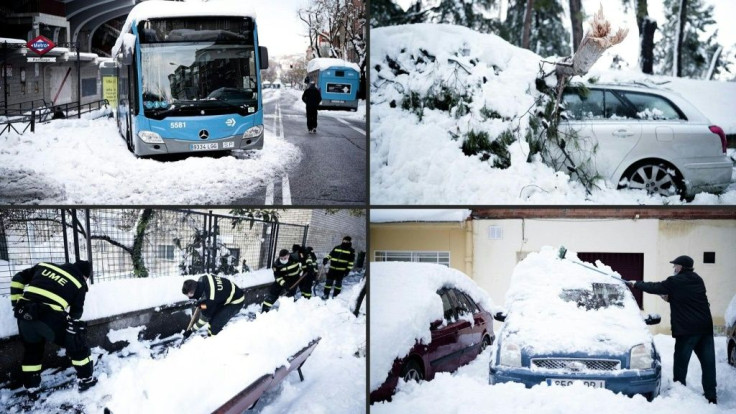
Emergency services workers and soldiers freed 2,500 drivers trapped in their vehicles by the storm, which killed at least three people.
Lacking enough salt and snowploughs, the authorities had as of Monday only managed to clear main roads of snow and fallen tree branches, with most pavements, smaller roads and residential areas still covered.
Residents pitched in to help municipal workers and soldiers remove snow from the streets.
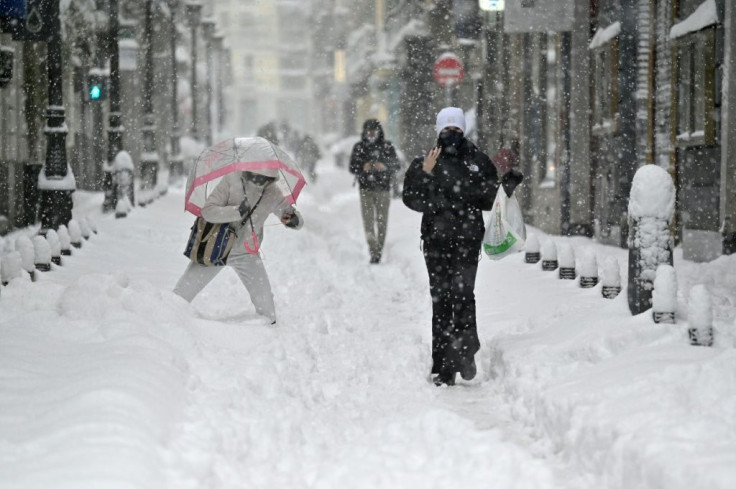
"We have cleared a passage with a borrowed shovel, especially for older people," Blanca Fernandez, a 39-year-old optician's employee told AFP as she cleared a sidewalk in front of her shop along with a co-worker.
"The situation is so hard that we wanted to help," she added.
The authorities are worried about the prospect of snow turning to ice, with temperatures expected to fall to minus 13 (9 Fahrenheit) in the centre of Spain on Tuesday.
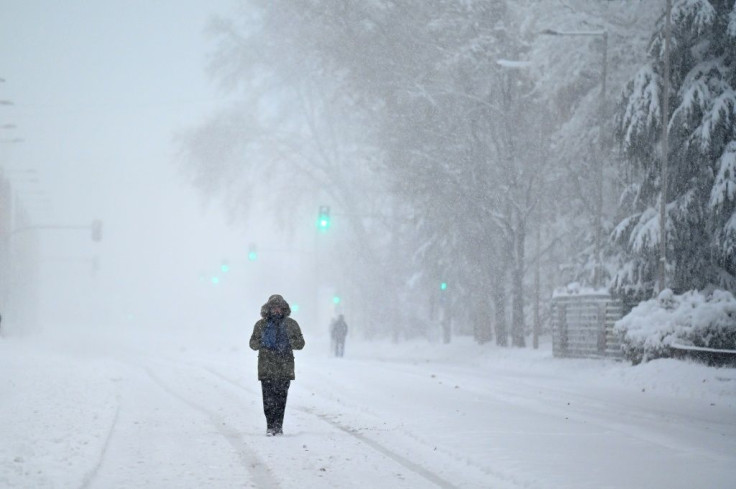
"We are still facing difficult days, it will not be easy to return to normality," Interior Minister Fernando Grande-Marlaska told a news conference.
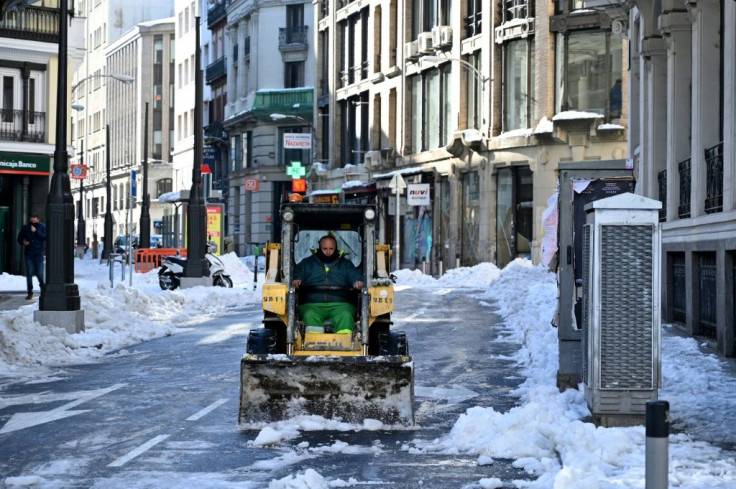
He insisted the travel chaos will not affect the distribution of the coronavirus vaccine, with 350,000 doses due to be rolled out nationwide on Monday.
"The delays -- if there are delays -- will be minimal and slight," the minister said.
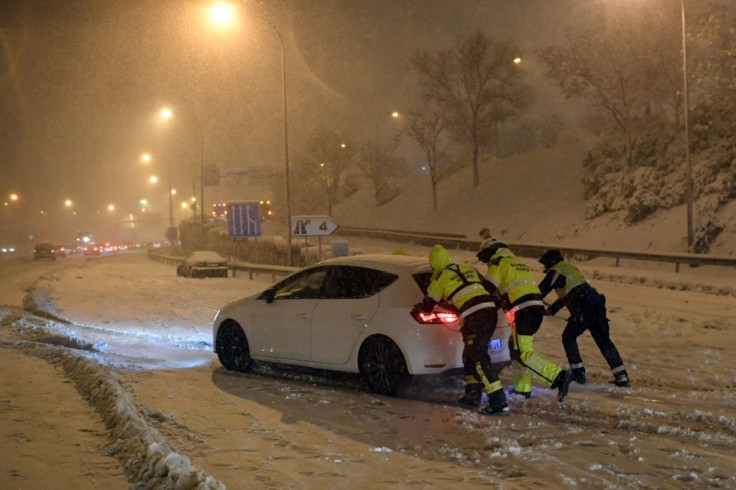
The distribution of the jabs to all regions was "guaranteed", he added.
At Madrid airport, which had been closed most of the weekend, the first flights resumed late on Sunday after the army cleared snow from the runways.
The rare snowstorm triggered some unprecedented scenes over the weekend in Madrid.
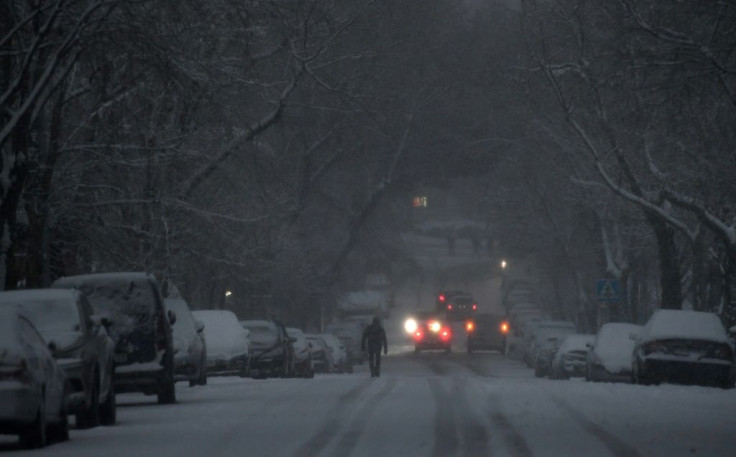
People skied along the city's main commercial street, the Gran Via, and held massive snowball fights despite pandemic restrictions on the size of groups which can meet in public.
One man was filmed being pulled on a sled by dogs while others celebrated the snow by singing and dancing a congo in the central Puerta del Sol square.
But on Monday residents largely heeded the government's call to stay at home on Monday, with the capital's streets all but deserted and quiet, except for the sound of shovels scraping snow and ice.
In Madrid's residential Prosperidad neighbourhood few people who ventured out walked slowly, some using canes or sticks to support themselves and prevent themselves from slipping and falling.
The local market was deserted.
Gabriel Madrid, the owner of a shoe store, said he feared he would not receive more merchandise "until Friday".
The Madrid region, among the worst hit areas, announced all schools, libraries and cultural institutions would be closed on Monday and Tuesday.
Courts would also remain closed until Wednesday, officials said.
The regional government of Madrid has distributed 277 tonnes of salt to the area's municipalities to prevent the formation of ice.
It is expected to receive another 3,500 tonnes of salt in the coming days from eastern Spain.
A total of 138 roads across Spain remained closed on Monday and nearly 700 were affected by the storm, meaning some form of restrictions on their use were still in place, said the interior ministry.
Four stations were providing shelter, food and blankets to the homeless.
Rail links were slowly re-established, with the first the departure on Monday afternoon of the first high-speed train between Madrid and Barcelona since the storm hit.
© Copyright AFP {{Year}}. All rights reserved.





















